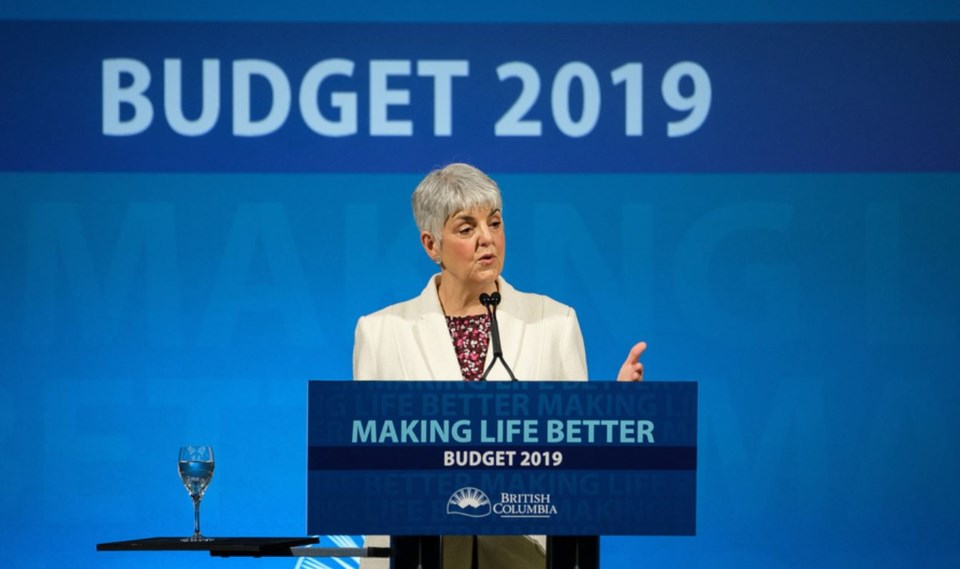The B.C. Budget 2019, announced February 19, proved light on new housing measures, with the only significant new spending a $76 million investment to buy land and build additional modular homes for the homeless.
Following 2018’s aggressive taxation measures and expansive affordable housing promises, finance minister Carole James firmly adopted a stay-the-course attitude in terms of housing, with the 2019 budget focusing instead on poverty reduction and family benefits.
The province took the opportunity to give an update on the progress of its existing housing plan, saying that of the 114,000 new affordable homes over 10 years promised in last year’s budget, 17,000 are built or “underway.” The ministry also pointed to the expanded and increased foreign buyer’s tax and the launch of the B.C. speculation and vacancy tax, and touted those measures as instrumental in helping to cool B.C.’s hottest markets.
The reads, “In less than a year, we’re seeing results. Over the past six months, the benchmark price for single-family homes in Greater Â鶹´«Ã½Ó³»decreased by 8.3 per cent, condo prices are down 6.6 per cent, and townhome prices are down 6.2 per cent.”
There was no sign of the $400 annual renters’ rebate promised by the NDP government in its election platform – a policy that coalition partner the Green Party has firmly argued against.
However, the ministry said it would help tenants to avoid losing their homes by “providing funding to community organizations to operate rent banks, by providing short-term loans with little to no interest to low-income tenants who can’t pay their rent due to a financial crisis.” In her announcement, James said, “There isn’t any benefit to any of us if those people who do have affordable housing are thrown out on the street. This is going to make a huge difference.”
There will also be additional benefits to seniors living independently in rental accommodation, through the Shelter Aid for Elderly Renters (SAFER) program, by an average of $930 a year, said the ministry.
According to the 2019 budget, overall housing starts for 2018/19 were 40,857 units, and this will fall to 34,015 units for 2019/20, 31,946 units for 2020/21, and 30,517 units for 2021/22.
Income from the new speculation and vacancy tax is forecast to rise from $87 million in 2019/20 to $185 million for each of the three following years.
B.C. budget documentation for 2018/19 shows that the province is in its forecast Property Transfer Tax revenues, due to the housing market slowdown in major urban centres. However, overall residential revenues are forecast rise from $951 million in 2019/20 to $1.146 billion in 2019/20, $1.183 billion in 2020/21, and $1.219 billion in 2021/22.
Anne McMullin, president and CEO of the Urban Development Institute Pacific Region, said in a statement, “Sadly, Budget 2019 offers little to encourage more housing options for British Columbians and zero incentives for purpose-built rental homes. In fact, Budget 2019 forecasts a dramatic collapse in provincial housing starts, including rental homes, over the next four years. This slowdown in starts will result in less homes, taking us back to average levels in the 1990s, when we critically need more housing options... It’s difficult to see how government will be able to meaningfully improve the vacancy rate, while building fewer rental homes.”
The 2019 budget was more warmly received by the non-profit housing sector. “We are delighted to see that the government is maintaining a strong commitment to the housing strategies unveiled in last year’s budget,” said Thom Armstrong, executive director of the Co-operative Housing Federation of BC. “Expanding the supply of affordable homes in B.C. is a pressing priority, and the community housing sector is actively partnering with government to reach the ambitious targets set out in the 10-year housing plan for B.C.”



